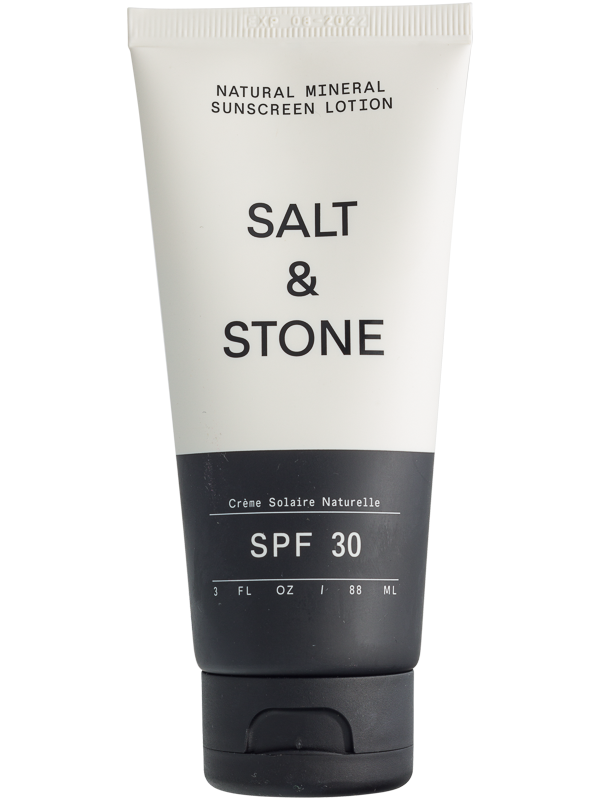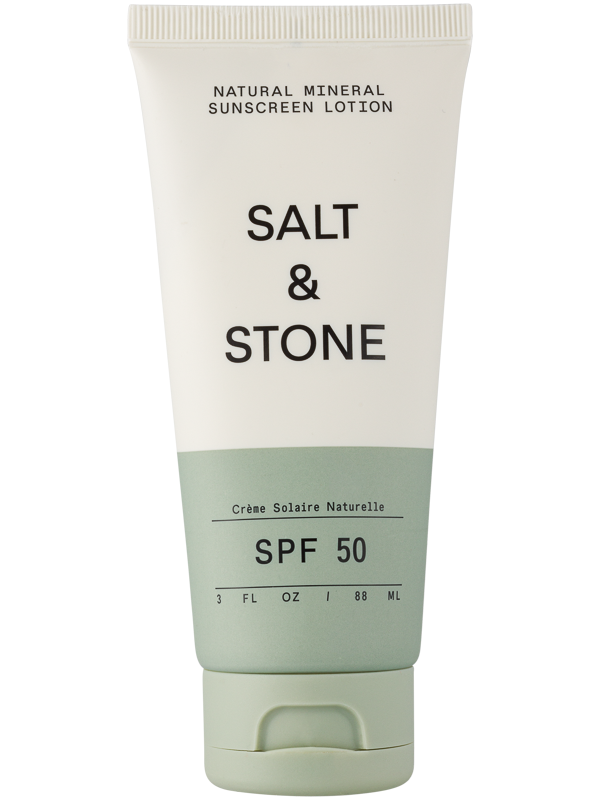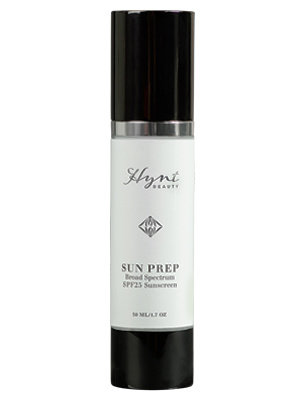Mineral vs. chemical sunscreen filters
When it comes to sunscreen, you can roughly choose between two types: sunscreen with chemical filters or sunscreen with mineral filters. Both work differently and have advantages and disadvantages. What filters are there and what do you choose?
Chemical sunscreen
Chemical sunscreen has a UV filter that penetrates the skin and absorbs sunlight. Because the chemical filter gets into the skin, a chemical filter can cause skin irritation. Especially when you have sensitive skin. Chemical filters in sun block are sometimes associated with eczema and itching. And there is even talk of hormone imbalance caused by chemical filters. Bad news! Do you want to know if you are dealing with a chemical filter in your sunscreen? Examples of commonly used chemical sunscreens are:
- Butyl Methoxydibenzoylmethane (Avobenzone)
- Disodium Phenyl Dibenzimidazole Tetrasulfonate
- Methyl Anthranilate
- Terephthalylidene Dicamphor Sulfonic Acid
- Benzophenone-3 (Oxybenzone)
- Benzophenone-4 (Sulisobenzone)
- Bis-Ethylhexyloxyphenol Methoxyphenyl Triazine (Tinosorb S)
- Methylene Bis-Benzotriazolyl Tetramethylbutylphenol (Tinosorb M/Bisoctrizole)
- 4-Methylbenzylidene Camphor (Enzacamene)
- Octocrylene
- Homomenthyl Salicylate (Homosalate / HMS)
Mineral sunscreen
Mineral sunscreens are also called physical sunscreens. The main difference with a chemical filter is that a mineral sun filter remains on the skin and does not penetrate the skin. On the skin, the filter reflects and absorbs sunrays, preventing you from burning. And since the filter does not penetrate the skin, a mineral sunscreen is the best solution for anyone with sensitive skin. And actually for everyone, because why would you want an SPF that can cause skin irritation? A small disadvantage of a mineral filter is that it leaves a white or greyish layer on the skin, while a chemical filter is almost invisible. Small side note: this white haze is already much less with the latest mineral filters than a few years ago. A superfine mineral sunscreen that does not leave a white film is Salt & Stone Natural Mineral Sunscreen Lotion SPF 30. Examples of commonly used mineral filters are:
- Titanium Dioxide
- Zinc Oxide
Oh, and about the white film: thanks to the use of nano technology, many sunscreens that 'used' to be white are now almost invisible. This is because the active ingredients in sunscreen are broken down into microscopic particles that are invisible. You can read more about nanotechnology and its advantages and disadvantages in this blog article >
So which is better?
Let's say that chemical and mineral filters both work equally well. If you apply your sunscreen liberally, you won't turn red with either filter. But because chemical sunscreens are more often linked to skin irritation and mineral filters rarely give irritation, we at BEAUTSY are mostly fans of mineral sunscreens. Much better for your skin and body! The best thing of all is to put on sunscreen at all times when the sun is out. Only SPF (mineral or chemical) will protect you from sunburn, skin ageing and skin cancer.
Not all chemical filters are bad
Although mineral sunscreen is in our opinion the best choice for your skin, not all sunscreen products with chemical filters are bad for you. There are also very good chemical filters that do not cause irritation and still protect like the best. An example of such a filter is Tinosorb S and Tinosorb M. Ideally, these filters are then combined with other physical filters.
Reef friendly sunscreen
Reef friendly is hot in the sunscreen world. Over the years, chemical filters have had a significant impact on the coral in the oceans. And fish and other life in the sea are also anything but happy with sun block. So unless you choose a coral-friendly sunscreen, with ingredients that do not affect the reef and are kind to all life in the sea. Most natural sunscreens are coral-friendly, such as those made by Salt & Stone. It is usually marked on the tube as 'reef friendly'.
Please leave
There are some filters that you really don't want on your skin. They are often associated with skin irritations and are simply not well regarded. Do you have doubts about your product? Check the label for these filters (and then swap your tube for a mineral one as fast as you can ;-)):
- Oxybenzone
- Octocrylene
- Homosalate
- Sulisobenzone
- Enzacamene
Go mineral!
The sun creams you find in our shop are all natural, with mineral filters, coral friendly and just very nice. At Salt & Stone you will find fine creams that spread well, but also handy sticks that are nice and compact and that you can take with you wherever you go. Just what you like! One of our all time favourites when it comes to mineral SPF? Hynt Beauty Sun Prep Broad Spectrum SPF25. This light mineral sunscreen with high SPF is non-sticky, leaves no white marks and is the perfect base for your make-up.



















